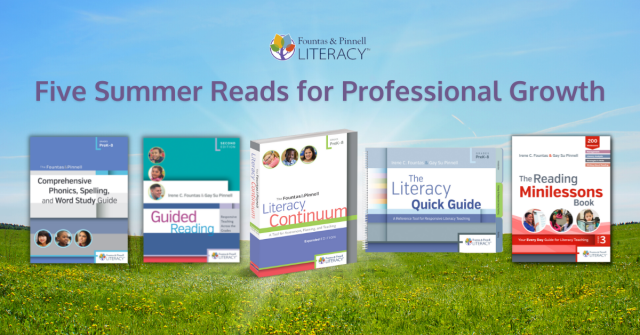
What is a Writing Minilesson?
Writing minilessons are brief, focused, explicit lessons that help children understand and apply the characteristics of effective writing and nurture their ability to write with purpose, imagination, and voice. Each minilesson engages children in inquiry that leads to the discovery of a technique or strategy that they can try out immediately.

Why are Writing Minilessons Important?
Writing minilessons are designed to:
- Focus learning on a single idea so children can apply the learning and build on it daily
- Foster community through the development of shared language
- Use an inquiry approach to support active, constructive learning
- Make connections using mentor texts from interactive read-aloud and shared reading
- Create relevance by linking to previous learning experiences
- Expand students’ writing competencies and link them to reading
- Generate anchor charts for student reference
- Nurture student independence with opportunities to extend learning
How are The Writing Minilessons Books Organized?
Writing minilessons provide children with rich opportunities to learn about and engage in the writing process. To help them connect ideas and develop deep knowledge and broad application of principles, related minilessons are grouped together in each book.
1. Interactive Writing Lessons (PreK–1): Reinforce the relationship between letters and sounds and how print works. Interactive writing lessons allow children to participate in the writing process with a high level of support. Children learn to see themselves as writers because they collaborate with their peers and teacher to craft meaningful writing.
2. Building Community (PreK): Build a strong community of learners who play and learn together respectfully and responsibly with lessons that focus on routines for children to think, talk, play, draw, read, and write together.
3. Telling Stories (PreK–1): Support the oral language component of writing that is fundamental for children as they learn to draw and write their ideas on paper with lessons that focus on teaching children how to tell stories.
4. Making Books (PreK–1): Support children by helping them to see that they can make books just like the authors of the books they read.
5. Drawing (PreK and K): Teach children to make representational drawings and to consider how to use color that resembles real life.
6. Exploring Early Writing (PreK–1): Help children develop early concepts of print and explore the writing process.
7. Management (K–6): Help children become a strong community of diverse learners who play and learn together respectfully. Most minilessons at the beginning of the school year will focus on organizing the classroom and building a classroom community.
8. Conventions (1–6): Help students develop more sophisticated understandings of grammar, spelling, and text layout—and how to apply these understandings to their writing.
9. Writing Process (1–6): Guide students through the phases of the writing process: planning and rehearsing, drafting and revising, editing and proofreading, and publishing.
10. Genres and Forms (2–6): Support students by helping them see that they can write like the authors of the books that they read. Through inquiry, students study the characteristics and qualities of different genres and forms.
11. Craft (2–6): Help students learn about the decisions writers and illustrators make as they craft their pieces of writing. For example, they might explore the way authors use details in their writing to describe characters and settings.



